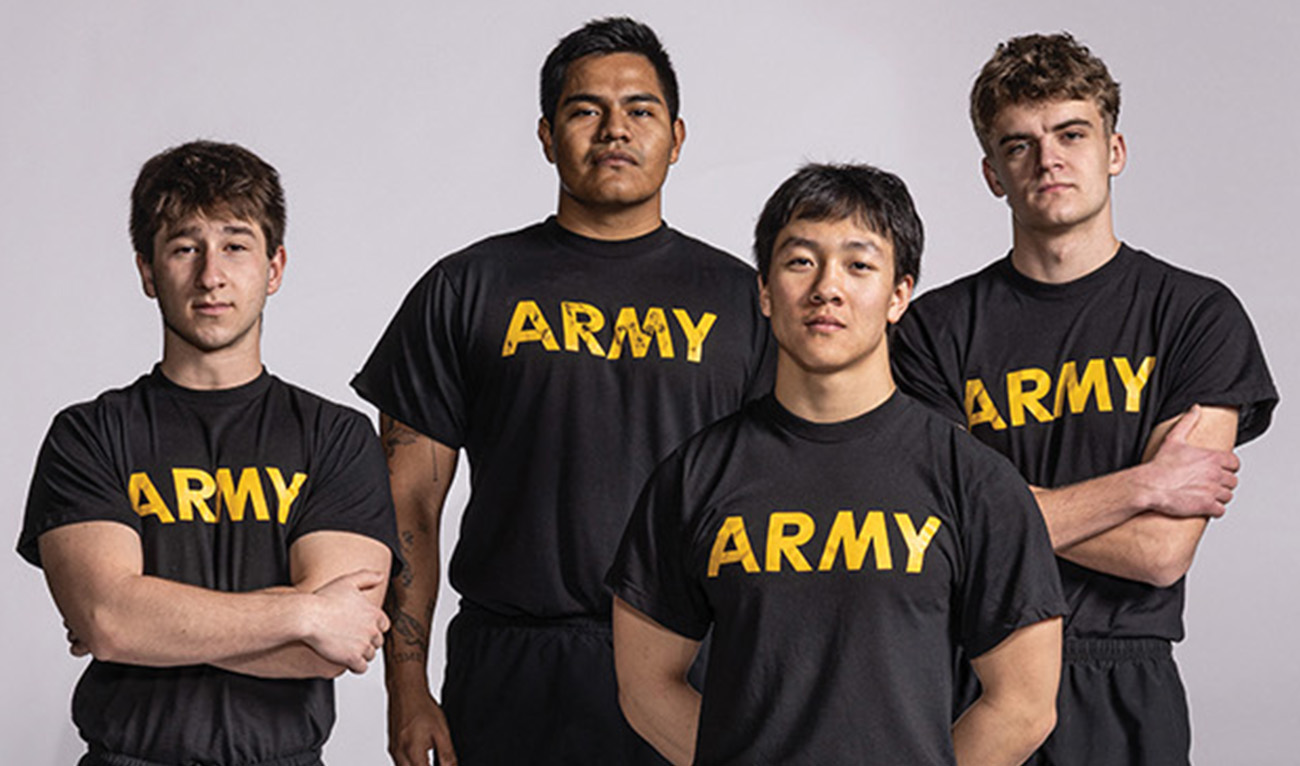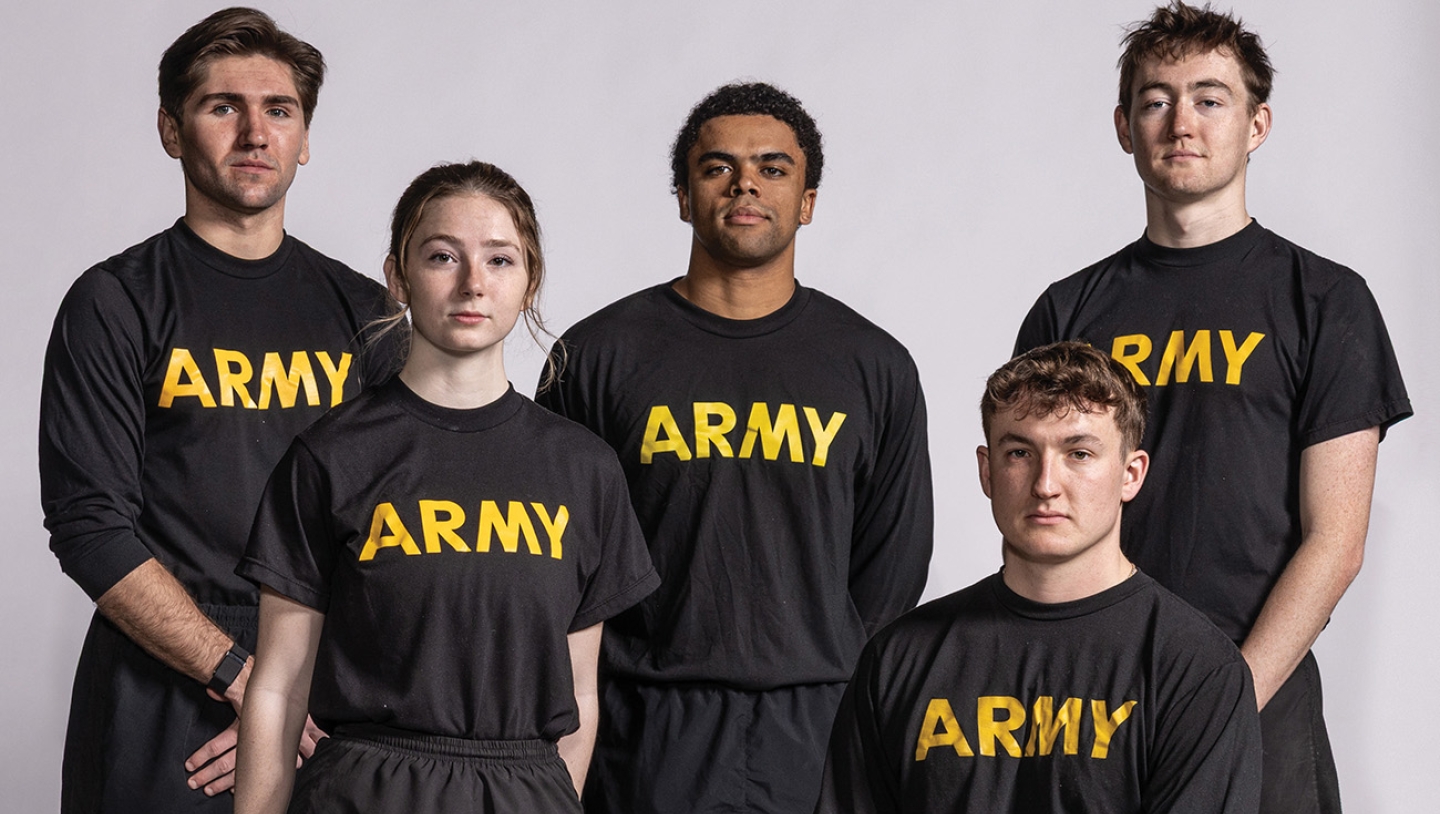Three days a week, Dartmouth ROTC cadets hit the ground running for 7 a.m. physical training based on the U.S. Army Combat Fitness Test. On Tuesdays they take a tactical lab class that covers military science. Warmer weather adds field training one weekend a month, which can involve a 12-mile ruck with a 40-pound pack. And once a term, the 18 members of Delta Company, as Dartmouth ROTC is called, train as part of the Wildcat Battalion based at the University of New Hampshire, or at Fort Devens in Massachusetts. There, they practice day and night land navigation, run a variety of missions, and sharpen their marksmanship skills.
The leadership development program offers scholarships and officer training in exchange for students’ future commitment to serve in the military. Cadets are commissioned as Army second lieutenants when they graduate. “I could not get that same level of direct hands-on leadership experience as I do in the military,” says Dylan Griffith ’25, ROTC’s student company commander, a government major on an international track with a public policy minor from Cambridge, Massachusetts. “I’m responsible for all sorts of stuff people in the platoon need. It forces you to delegate what you can and control what you need to.” After law school he plans to fulfill his years of active-duty service as a lawyer in the Army’s JAG Corps.
Allie Hughes ’28, from Sumneytown, Pennsylvania, says the training can be a struggle. “The best part is you progress mentally and become physically stronger. It’s not the easiest, but you just power through.” She particularly liked learning land navigation with a compass and map in the woods. “It taught me how to trust myself,” she says.

“I just want to serve, I’ve made good friends, and I’m also a big fitness guy,” says Rev Alberta ’26, a psychology major and neuroscience minor from Yosemite, California, who hopes to work as a clinical psychologist.
“I like being in the outdoors,” says Lyndon Huang ’28, an Eagle Scout from Houston who plans a double major in mathematical data science and economics. “Waking up can be tough,” says Vladimir Somarriba ’25, who already spent a year in the Florida National Guard. “Yes,” Huang chimes in, “but you’ve conquered the morning.”





